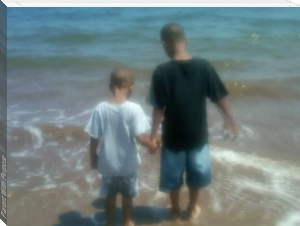Parent With Purpose, Tiffany Mitchell [ebook reader with built in dictionary .TXT] 📗

- Author: Tiffany Mitchell
Book online «Parent With Purpose, Tiffany Mitchell [ebook reader with built in dictionary .TXT] 📗». Author Tiffany Mitchell
They may grow up and have romantic ties with someone who you don’t understand, grow to have different religious beliefs, or choose a profession in which you do not agree with and/or have a lifestyle that is different than yours. These are not reasons to be ashamed or angry with the choices. These decisions should be celebrated and at the very least respected. By doing you can rest easy knowing that you have been doing your job of making a comfortable environment where they are free to be themselves. Furthermore it means that you have allowed yourself to be open to the idea that their purpose and journey is different than your own.
Fearlessness: Fear is something that changes throughout different stages of growth. As a baby loud noises or different people can be scary. As a toddler there is a belief that everything is possible and fun. They jump off furniture and believe they can fly. Then they become teenagers and the fear creeps back in when they experience the discomfort or worry of not fitting in. Fear has to be addressed in each and every one of these phases.
As a baby we have to nurture and teach trust. We have to allow them to trust that you will protect them when entering unknown situations. Listen to their signals but also ensure them of their safety. When they have become little risk takers and are exploring the world through their imagination help them. Play along with them to make sure they never lose the desire to dream and imagine. Discipline with intention of teaching a better way to do things and not through fear. Fear of you will never guide them. It will instead stunt their growth and create an unhealthy level of communication. As they become older again remind them of how special they are daily. Remind them of the importance of being their authentic self. Fear of not being themselves should outweigh the fear of not fitting in.
There are several traits that can be included in creating a vision for your child. These are the ones that we as adults tend to struggle with the most and therefore we should begin talking about them as early as possible. These are also the parts that we need to be focusing on in order for us to have a more fulfilling life. We have to take care of ourselves so that we can take better care of our children. Remember that you cannot give what you do not have. Growing constantly is necessary so that we have more to offer. We must always be aware of the decisions we are making and choose to always evaluate ourselves to ensure that we are positive demonstrations. We have to hold ourselves accountable for the times we aren’t being those positive demonstrations and be willing to adjust our behaviors. Growing together will create a happy, rewarding and healthy family.
Step 2- Use Your Words
Communication is key! We have heard this over and over. It really is the most important aspect of all relationships. Interesting enough some of the biggest complaints of our children regarding their parents are “They don’t listen to me” or “I can’t talk to my parents”. This has to be the main basis of your relationship with you children. There has to be an exchange of information about all things at all times. There needs to be a level of trust established and you have to learn to pick your battles. It’s time to take your ego out of parenting and establish a real relationship.
A parent is everything to their child. They are the chef, chauffeur, maid, counselor, dance partner, fan and their friend. You do want to develop a close and appropriate friendship with your child so that you can better understand each other. As with all things nothing in excess is healthy so you do want to make sure the friendship you are creating is appropriate. You want to be able to have a relationship where you can sit down and discuss important issues. You want to be able to be a good resource of information and advice. You also want to really know who your child is. This is important when making decisions. You want to be fully aware of their strengths and weaknesses so that you can help them navigate their way through life. Developing a friendship as part of your relationship will allow you to do this. Friendship is a great part of your relationship to invest in as long as it is only a part of the relationship and not the core of it. You do have make sure you have appropriate boundaries. This friendship is to help keep open communication only.
There is a generational gap and therefore a real difference in the way that things are done. As time goes on things change, technology develops and the perspective of society shifts. However a lot of the same beliefs and mistakes that you made while you were a child you see your child repeating. It is important to close that gap of misunderstanding. Share your own experiences with your children. When you share your experiences and lessons you offer a real sense of understanding and closeness. They will begin to realize that you really do understand them and will start to trust your advice or at least take it into consideration when it’s time for them to make tough decisions. As much as children do not want to admit that you have a deep influence on how they do things the truth is you do. Your stories will stand out in their minds. Your words and voice will play in their heads. You just want to make sure that your words are a resource that they can trust in.
When an open line of communication is established from the very beginning there is no “big talk” to conquer. There are no moments of awkwardness during important conversations such as talks about drugs and sex. Instead questions and conversations will just naturally happen. You can offer your input and guidance in the best and most appropriate way possible. There really isn’t anything that you cannot talk to your children about. There should never be a topic that is off limits regardless of what the age. You just have to be willing to make sure that you are addressing things in the way that is most appropriate for your child at that time. Use your conversations to help them to develop an understanding of different situations and be as completely honest.
The most important gift you can offer your children is truthfulness. When establishing a relationship that has a really great level of communication you want to make sure that you have a real trust for one another.
You want to make sure that the information that you are sharing with them and the advice you are offering to them is something that they can believe in. If they find out that you have in any way spoke false truths then they lose trust in your words.
Another important factor in establishing a trusting and communication based relationship is your reaction. If you want to really have an open and honest relationship with your children you have to understand and accept that what they say is not always going to be something you want to hear. They may have participated in a behavior that you dislike and disagree with or they may share with you their opinions and thoughts about something that are opposite of your own. You are going to have to accept that they are their own individuals, with their own perspectives and set of experiences that are shaping who they are. You cannot get upset, yell, and punish them for every behavior and/or opinion that is not your own. Everything has to be addressed but it should be addressed in a appropriate manner that offers guidance but also allows the line of communication to be maintained. This will be a very difficult thing to balance especially during the teenage years but it is worth the patience.
Always keep your vision in mind. Ask yourself what you intend for them to learn based on what they have shared with you. Calmly address the situation accordingly. They are going to make mistakes just as you did, have bad judgment at times just as you did and learn some hard lessons just as you did. Offer them consequences that are appropriate and assure them through both your words and actions that they can confide in you.
Learning to pick your battles is essential. There are times when your action is going to be required. If they are making choices that could affect their, health, well-being or safety yes it is necessary to address and create boundaries and consequences. Understand that not everything will require this level of guidance. There are times when you need to have just a conversation with them where you advice and suggestions can be offered in a calm and understanding way. There are other times where a behavior may not need anything other than an acknowledgement that you hear them. Pick you battles wisely. Choosing to react to every little thing that is said can create an uncomfortable environment and limit the ability to build a healthy communicative relationship.
An example of action response would be if your child comes to you and shares with you that he/she bullied another child. This is not a behavior that is acceptable or should be tolerated. An explanation needs to be given as to why this behavior is unacceptable, a consequence such as making them apologize would be necessary. Then set up further consequences and understanding as to what would happen if the behavior should happen again.
A response that needs to be addressed but doesn’t need any type of action on your part would be if your child came home and shared that they had a crush on a classmate. Now although you insides may cringe at the thought of this you must remember it is a natural feeling to have admiration towards other person. It is natural to be attracted to someone due to their looks, or personality. It is not the end of the world!
You do need to address this and make sure you are both clear about whatever rules you have established regarding this issue. It would be a perfect time to discuss the dating age and the type of behavior that is accepted whether they are of dating age or not. You can also use this time to both talk about and demonstrate how people should be treated and what types of behaviors should be accepted from people that they are in a relationship with. Other than those types of discussions there is no real action that is needed. Don’t lock your daughters away and don’t punish, tease or communicate that this type of behavior is wrong. Just guide them according to your house rules and make sure that





Comments (0)